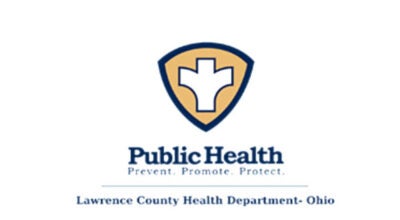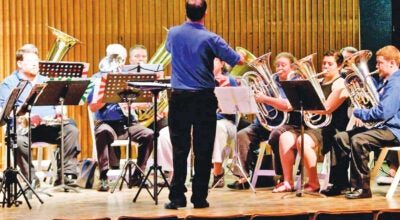Another step taken toward quiet zone
Published 10:25 am Wednesday, November 19, 2014
Mayor Blankenship again submits request
The back-and-forth between Ironton Mayor Rich Blankenship and Norfolk Southern Railroad to establish a quiet zone at the McPherson Street crossing continued on Tuesday when another request letter was sent to railroad officials.
“I had a lengthy conversation with a railroad official in Atlanta,” Blankenship said. “He told me exactly what my request letter should say and what else needed to be included with the letter.”
Blankenship said although he appreciates the input from the railroad official, most of the things he requested had already been given to Norfolk Southern.
“They want pictures and I’ve already given them pictures,” Blankenship said. “But, I went back up there (to McPherson Street) and took more pictures. I get the impression the gentleman I talked to had never read the previous letters I have sent.”
Also requested to be included in the letter, Blankenship said, were the number of attempts he has made to contact Norfolk Southern, who he attempted to contact and how, a joint petition from Norfolk Southern officials and residents showing a negative safety impact if the waiver is granted and the contact information for whom the city contacts in the event of a flood and the gate at the crossing was opened.
“I get the feeling (Norfolk and Southern) is wanting me to give up, but I’m not going to,” Blankenship said. “What I am going to do is adhere to their requests and re-submit the letter. This is a major, time-consuming undertaking and my intent is to get the waiver.”
Nearly 20 letters of support for the quiet zone were submitted by residents and Blankenship said those were also included in his newest request letter.
The quiet zone would be enacted from 10 p.m.-6 a.m.
Blankenship has authority to request the limited waiver with respect to the application of 49 CFR Part 222, aka the train horn rule, which permits locomotive engineers to begin sounding train horns at least 15 seconds and no more than 20 seconds in advance of all public grade crossings.
“It is important to note that the McPherson Street crossing is closed at all times except when flood gates must be installed in the city and it is then this crossing becomes the only access route,” Blankenship wrote. “The opening of this crossing typically occurs for a one- to two-week period with an interval of at least several years between openings.”
The train horn, Blankenship said, is a quality of life issue. The railroad would also bear no costs and no safety liability.
“Granting the waiver requested in this letter would be of tremendous benefit to a large portion of the population of Ironton,” he said. “Simply stated, it would allow them the basic right of an uninterrupted, good night’s sleep. There are absolutely no costs to be incurred as a result of the waiver to the private sector, to consumers, the federal, state or local governments and no compromise of safety.”





